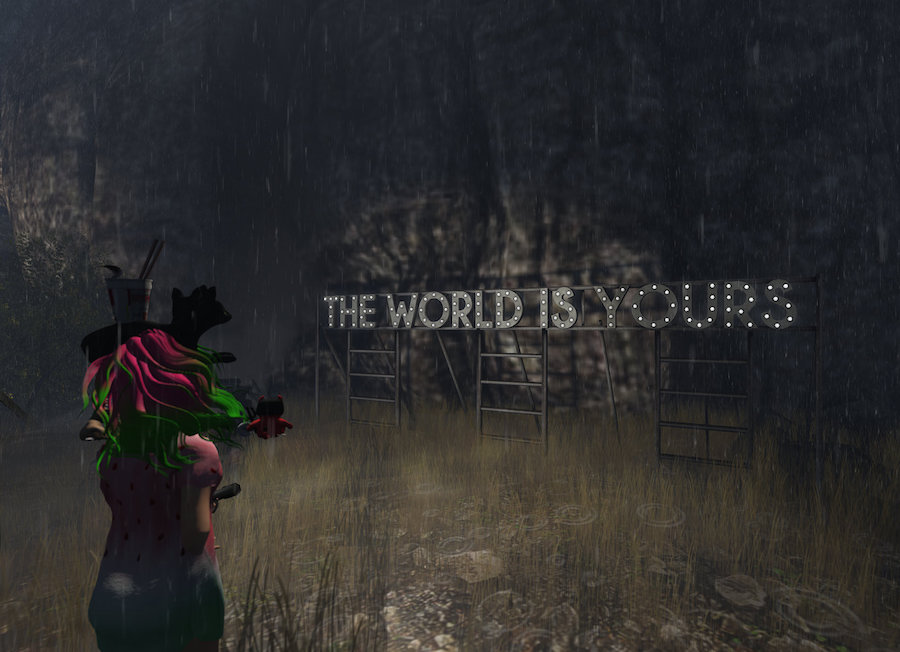Last week Jeremy Southard offered up this prompt in the chat group:
what about gatherings/collectives? The cyberfuture is now! Online or otherwise, more and more groups of diverse people are coming together and sharing their interests in tech, the future, and their own projects. This slack is one of many. There’s local makerspaces (I can submit pics from the one I’m a member of if you’d like), thingiverse, osh park, adafriut, hackaday.io, sparkfun, etc… Then deeper from “just tech” to body mods like the NFC implants and 3d printing limbs like openhandproject.org.
See also: biohack.me and eight zillion subreddits.
In fact, this gathering-of-semi-obscure-enthusiasts phenomenon is the effect of the internet that I am personally most stoked about. I get to fraternize with people who share my niche obsessions, and I don’t even have to leave my house?! Paradise.
It sounds cheesy to say “I just want to make friends!” — and truth be told, I also want to be widely read. However, making friends is a big part of why I go around shouting into the void all the time. It turns out the void has other shouting people in it, and if we’re shouting things that mesh well, we can cluster and shout together.
On the other hand, subcultures breed drama. They’re sort of like small towns. This isn’t unique to the internet at all — join a local punk or anarchist scene and you’ll be awed by the amount of interpersonal conflict — but it’s particularly easy to observe on the internet. Everything is documented in comment sections or Twitter threads or what-have-you. Usually the detritus is messy and hard to follow, but you can piece things together. I enjoy watching drama from the outside, but having it happen to your own community is horrible.
What happens more quickly on the internet than IRL is subculture dilution. Anyone can access any information effectively instantaneously, so cultural distribution speeds up. There’s an iconic Meaningness article called “Geeks, MOPs, and sociopaths in subculture evolution” that outlines some of the problems that inevitably arise. (“Mops” are casual fans.) Anyway:
Fanatics want to share their obsession, and mops initially validate it for them too. However, as mop numbers grow, they become a headache. Fanatics do all the organizational work, initially just on behalf of geeks: out of generosity, and to enjoy a geeky subsociety. They put on events, build websites, tape up publicity fliers, and deal with accountants. Mops just passively soak up the good stuff. You may even have to push them around the floor; they have to be led to the drink. At best you can charge them admission or a subscription fee, but they’ll inevitably argue that this is wrong because capitalism is evil, and also because they forgot their wallet.
Mops also dilute the culture. The New Thing, although attractive, is more intense and weird and complicated than mops would prefer. Their favorite songs are the ones that are least the New Thing, and more like other, popular things. Some creators oblige with less radical, friendlier, simpler creations.
The dilution process is really disappointing to the hardcore fanatics, and the creators have mixed feelings about it. This reminds me of another excellent analysis of subcultures, “Social Gentrification” by Simon Penner:
[T]here’s a class conflict between the people already there and the people coming in. The people coming in are mostly middle- and upper-middle class folks with safe, stable lives, money enough not to be living precariously, etc. (Analogy: the people participating in nerd culture, now that it’s mainstream, always had other communities and social outlets that worked for them.) The people who are already there, on the other hand, have poor, hard lives because life screwed them over (analogy: the existing “real” nerds, for the most part, have suffered serious physical and social bullying that has severely impacted their life for the worse). More importantly, the people who are already there have nowhere else to go; they can’t afford the rising rental prices around here (analogy: the “real” nerds, being social outcasts, don’t have any other social communities they’re welcome in). […]
The end result is that every time I find a community or activity I like and enjoy, and try to get involved in it, it inevitably gets yanked away from me once people figure out that it’s cool.
Penner goes on to say, “I know two people who would have killed themselves if they didn’t have 4chan as a social support network (which sounds insane to everyone who hasn’t been a /b/tard, and obvious to all who have).”
I don’t think there’s any obvious solution to this problem of “social gentrification” — there might not be any solution as all, since people getting more empathetic in aggregate is a development I have doubts about. I dunno, what do you think? (Just reply to this email.)
The header image is a screenshot by ▓▒░ TORLEY ░▒▓.




Comments are closed.